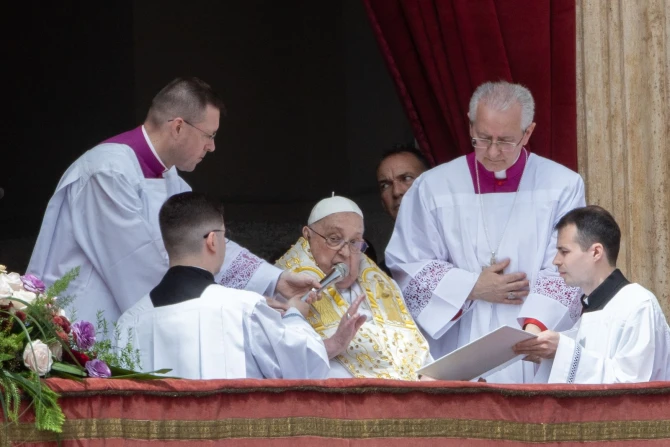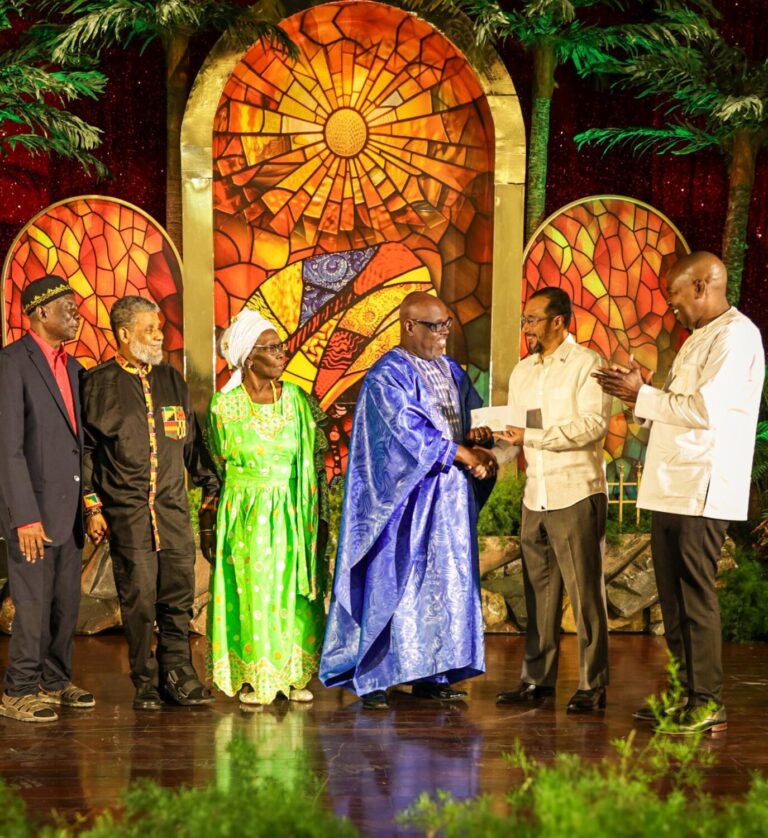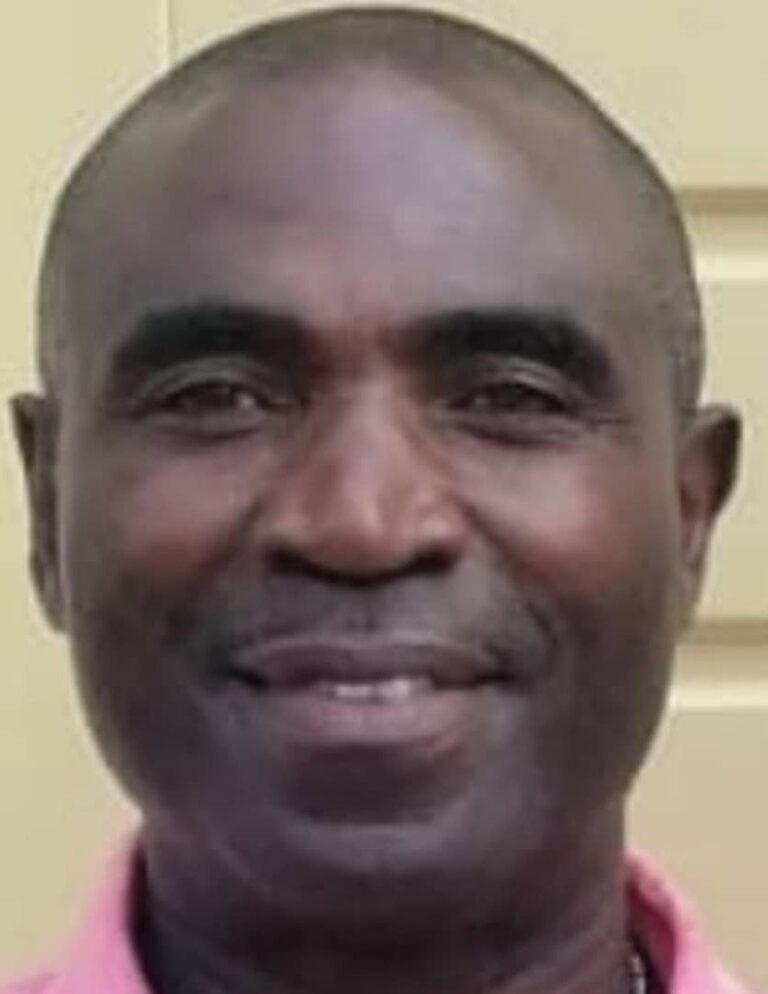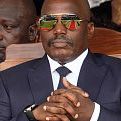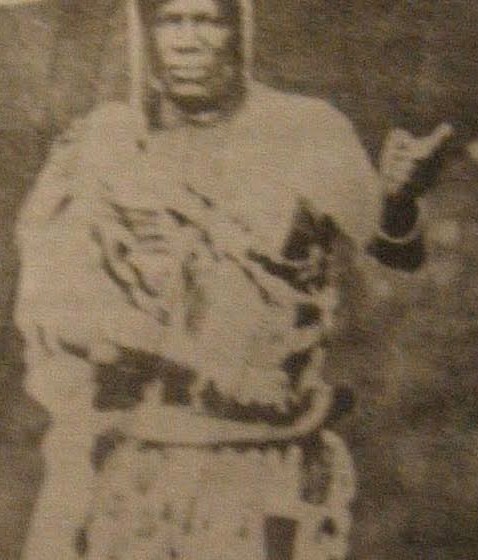
President Christine Carla Kangaloo was among leaders who expressed condolences and loss after the death of Pope Francis – Jorge Mario Bergoglio – the world’s first Latin American Pontiff, describing him as a transformational leader.
Francis died on April 21 at 7.35 am. He was 88. The Vatican said Francis died of a cerebral stroke which put him into a coma and led to irreversible heart failure.
Kangaloo sent condolences on the pope’s passing in a letter to Cardinal Giovanni Battista.
“(He) will be remembered as a transformational leader whose legacy transcended borders, faiths and ideologies,” Kangaloo said in a media release on April 21.
“His holiness served with deep compassion, humility, and unwavering dedication to uplifting the marginalised and addressing the most pressing social challenges of our time. Throughout his papacy, Pope Francis was a vocal advocate for peace, poverty alleviation, climate action and the protection of human rights – issues that continue to resonate across the world.
“Pope Francis brought a unique and empathetic voice to the Vatican, reshaping the global church’s mission with a focus on mercy, inclusivity, and social justice. His leadership inspired millions and opened new paths for dialogue among people of diverse beliefs.”
Prime Minister Stuart Young, in a social media post, described Francis as a great and yet humble leader, who was known for his promotion of international diplomacy.
“Pope Francis focused on uplifting the poor and vulnerable…He approached modern topics with an open mind and was not afraid to suggest the need for change. He was a known advocate for action on climate change and showed genuine concern with the regard for treatment of migrants and often called for more protection for migrants and others who found themselves in vulnerable circumstances.
“As we celebrate the life of Pope Francis…I join with the Catholic church in prayer that the next pope will be chosen, mindful of the world we now live in and the challenges that we face as a people.”
Opposition leader Kamla Persad-Bissessar described him as one of the world’s best champions of humanity, freedom, and global unity. She said he was beloved, extolled and heralded by global leaders for his activism in these causes, and veritably seen as a universal guide and authority figure.
“His natural charm, deep humility, genuine love for the poor and keen interest and championing of contemporary issues like global climate change endeared him to not just the Catholic community but the entire world, casting him as humanity’s moral conscience.
“His life will forever serve to us all as a reminder of our obligation to build a culture, locally and globally, in which the strong protect the weak, and justice, fairness, dignity and progressiveness is God’s ultimate gift for humanity, which all are duty bound to embody in a life of public and personal service.”
UN Secretary General António Guterres said Francis was a messenger of hope, humility and humanity.
“He was a transcendent voice for peace, human dignity and social justice. He leaves behind a legacy of faith, service and compassion for all – especially those on the margins of life or trapped by the horrors of conflict.”
He said Francis was a man of faith for all faiths. He lauded him for working with people of all beliefs and backgrounds.
“Through the years, we at the United Nations were greatly inspired by his commitment to the goals and ideals of our organisation – a message I was honoured to convey in my meetings with him as Secretary-General. Our divided and discordant world will be a much better place if we follow his example of unity and mutual understanding in our own actions.”
Archbishop Charles Jason Gordon through the Archdiocese of Port of Spain described Francis as a man of depth and commitment to Christ.
“We have lost a true shepherd…He was a faithful disciple who kept the joy of the gospel alive in the hearts of the faithful, even as he called us to a deeper love – within the family, for our common home, for the poor and marginalised and for one another across every boundary and division.
“In one of the most challenging and complex periods of human history, Pope Francis showed us how to walk together toward Christ. He made synodality – walking together in communion, participation and mission – constitutive of the church’s very identity. Through his life, his ministry, and his courageous witness, he called the church to become ever more a field hospital of mercy and a sacrament, a sign of hope in the world.”
Minister of Foreign Affairs Amery Browne joined in offering tribute to Francis in a post shared on social media.
“I will remember him for his dedication to global peace and his willingness to identify with the plight of marginalised people such as the Palestinians.
“His voice was one of reason and his consistent focus was on the essence of humanity, in an age when such attributes have been increasingly scarce and precious.”
The Caribbean Baptist Fellowship also celebrated Francis’ life in a release. The fellowship said, through his ministry, Francis reminded the world about the power of love, mercy and grace.
“Despite denominational differences, Pope Francis, in his words and actions, challenged us all to live out the Gospel with integrity – in ways that are authentic, inclusive and life-giving. His was a faith that saw Christ in the marginalised, hope in the broken, and dignity in every human created in the image of God.”
NTA political leader Gary Griffith said Francis will be remembered for his unwavering commitment and as a champion of compassion, humility and justice.
“As a voice of moral clarity in an often-divided world, he inspired countless individuals to act with greater empathy and purpose.
“His continuous effort to create bonds between all religions and communities is something that we in TT identify with truly. His teachings and example called us all to be better stewards of our communities, to care for one another, and to uplift those in need.
“In our beautiful twin island republic, where the Roman Catholic church holds a significant place in our nation’s religious and cultural fabric, the loss of Pope Francis is felt with particular poignancy,” he said.
Veteran journalist Dominic Kalipersad, in a post on Instagram, said Francis was introduced to steelpan in 2013. He was gifted an instrument by TT’s then-president Anthony Carmona.
Kalipersad said Carmona visited the Vatican City State shortly after he assumed office in March 2013. He said the pope tried playing the tenor pan after a short lesson from Carmona, then exchanged gifts after a private meeting in the papal library.
Earlier this year Francis was hospitalised for weeks suffering a severe health crisis. He had a life-threatening case of pneumonia in both his lungs.
Physicians performed bronchoscopies to clear his air passages while he was hospitalised. Doctors diagnosed him with an infection in his lungs and complications with his kidneys. He was discharged last month to recover at his residence in Casa Santa Marta, a hotel suite adjacent to Vatican City in Italy. As recently as last week, physicians had said he was improving.
One of the last people who visited Francis was US Vice President JD Vance, on April 20, the same day Francis gave his final public blessing in St Peter’s Square, just outside the St Peter’s Basilica, in Vatican City.
Pope Francis was selected for the papacy in 2013, preceding Pope Emeritus Benedict XVI. During his time as pope he took the lead in the church’s decision that remarried Catholics, in certain cases, could once again receive the sacraments, such as holy communion, through a system of confession, penance and spiritual direction.
He also was known for his outreach to the LBGTQI+ community, encouraging parents not to condemn their children’s sexual orientation in 2022, despite approving a decree which barred priests from blessing gay couples the year before.
Francis also narrowed the church’s position on war, narrowing the criteria for what is considered by the church as a “just war” – a war fought for a just cause, declared by a legitimate authority and waged with the intention to promote good and avoid evil.
He, however, taught that redress for an injustice is not a valid cause for war. Rather, for Francis, self defence was the only legitimate reason to engage in war.
Source: newsday.co.tt


